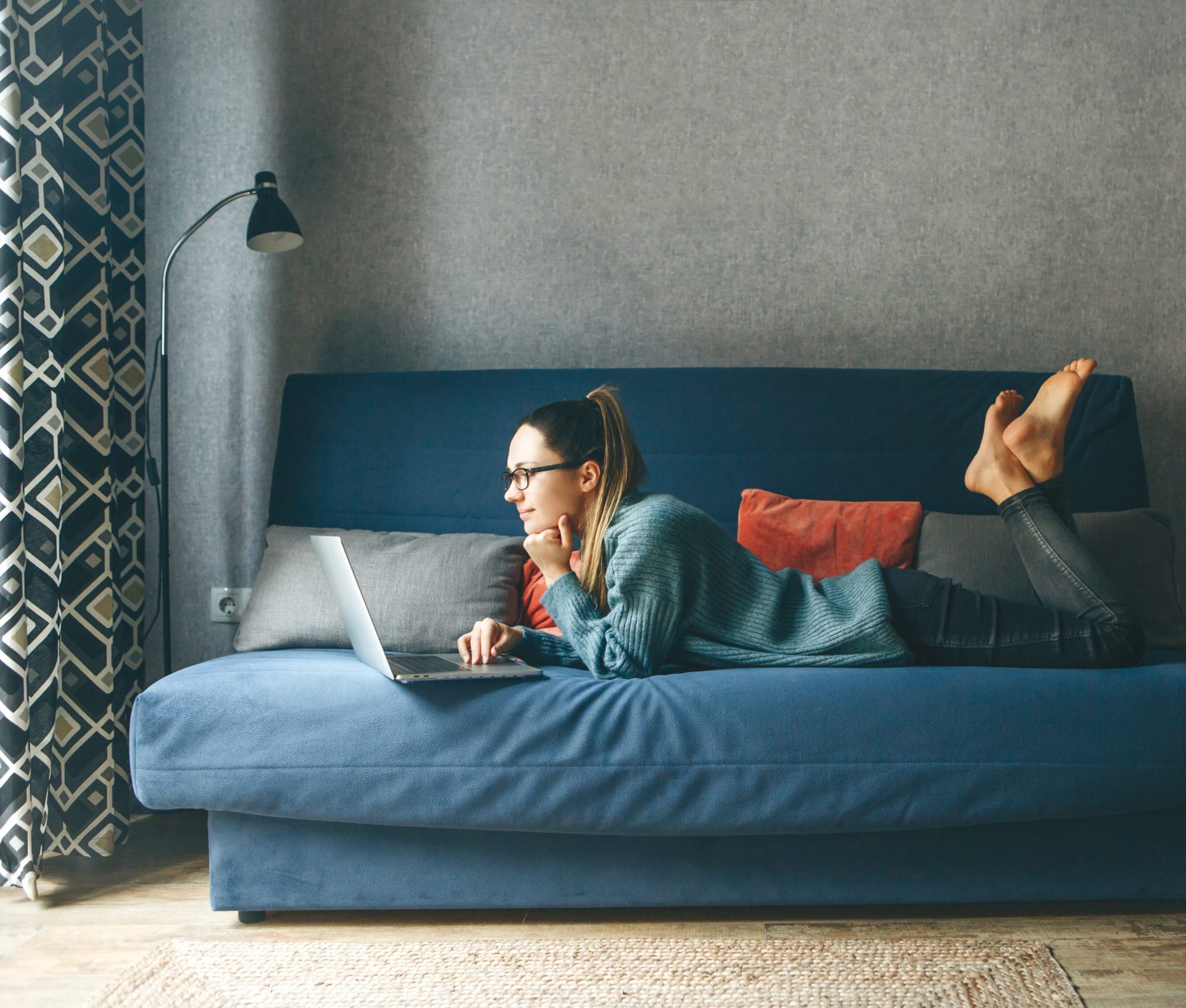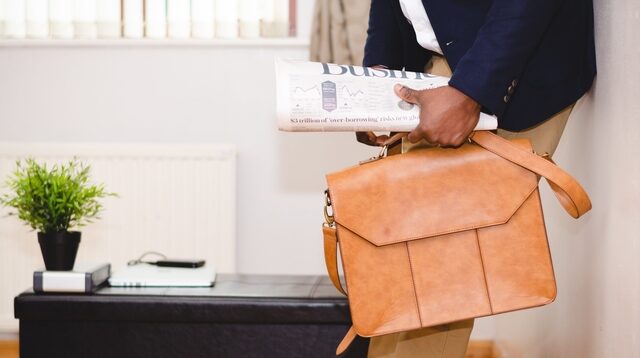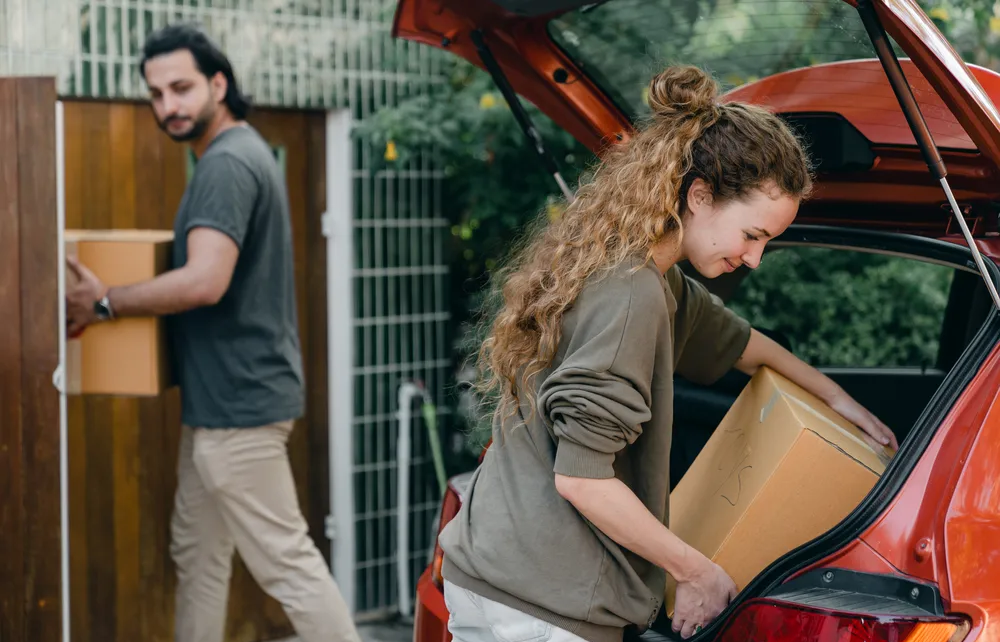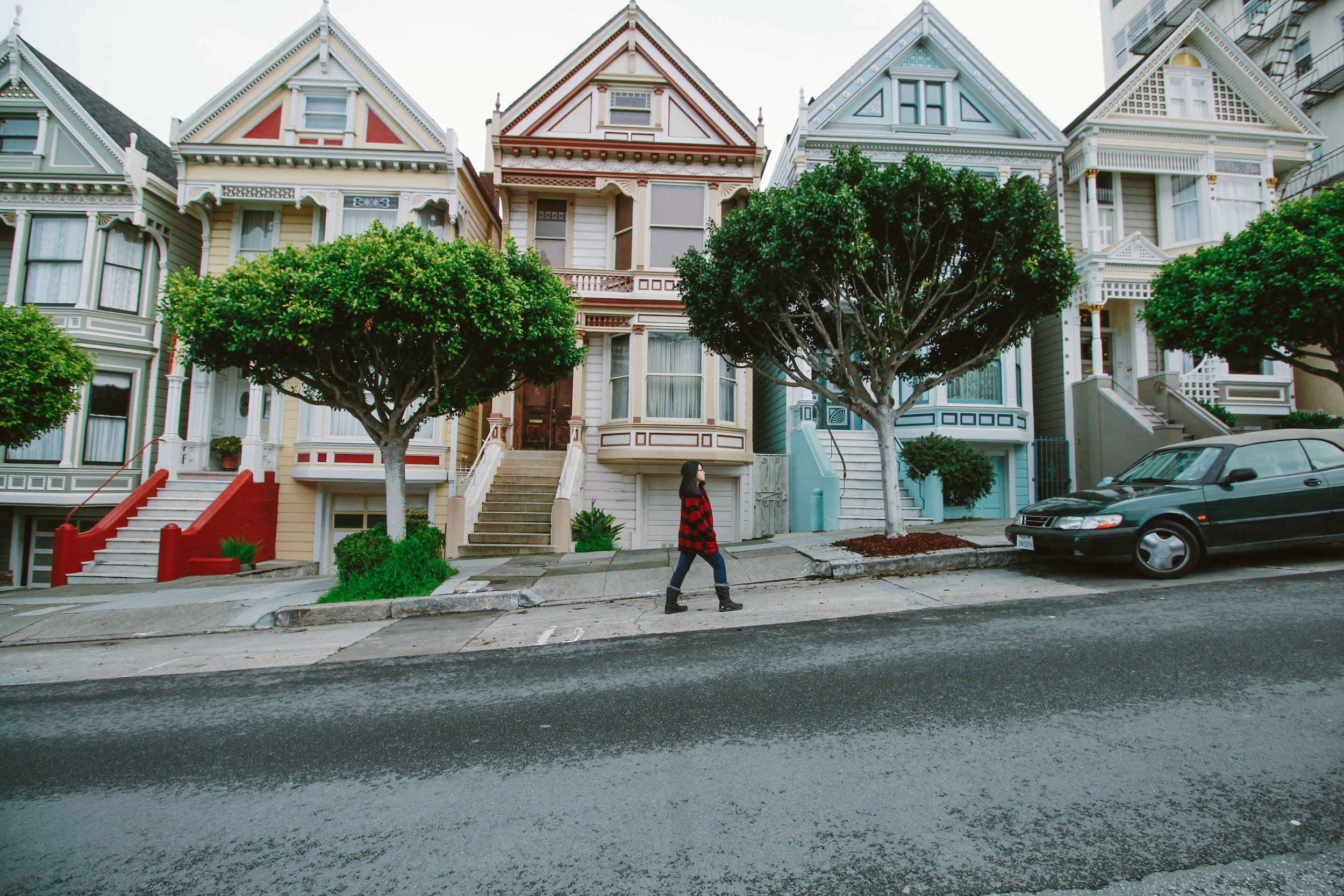
10 Most Important Apartment Hunting Tips

Whether it’s your first apartment or you’re moving for what feels like the hundredth time, the process can be both exciting and overwhelming. Depending on the real estate market in your city, it might feel like you need to put an application on the first decent apartment you see… or else risk having to choose a less-than-optimal unit.
To make sure you find the perfect apartment for your needs, it’s important to conduct a thorough search if you want to find a great apartment.
Ready to get started? Here are the 10 most important apartment hunting tips for finding the right space.
1. Set your budget
Looking for apartments can be overwhelming. Whether you go for a fully furnished apartment or an empty space, finding the right apartment can be a tedious process. Of course, you want to find a unit that checks all your boxes. But if a basic search doesn’t yield anything promising, you might be tempted to up your price range a little higher, and then a little higher. When it comes to apartment hunting 101, the first thing anyone should do is to set a solid budget. Without a firm budget in mind, you can end up signing a lease for a new apartment that’s more than you can afford, especially when you add utilities.
To set your budget, ask yourself:
- How much can you afford to spend on rent, utilities, and parking in an average month? Will you also need to pay for storage, access to a bike room, or any other apartment amenities?
- Can you afford higher seasonal costs for heating in the winter and cooling in the summer? If not, make sure to factor that into your maximum rent cost.
- How much cash-on-hand do you have to put towards a security deposit, first month’s rent, and pet deposit?
- How much will the actual move cost you? How will that affect your cash flow in the first few months of your lease?
Once you’ve answered these questions, you’ll have a realistic sense of how much you can afford to pay in rent for your new place. In addition, you understand how important it is to ask questions about expenses beyond the rent. (We’ll cover more of these in Tip #5.)
2. Make a list of non-negotiables
Once you know your budget, make a list of what you absolutely need in an apartment. Remember, there are many different types of apartments out there and your apartment hunt will go a lot easier if you know what you’re looking for. Things that may be on your list include:
Overall requirements
- A certain square footage
- A minimum number of rooms or bedrooms
- Pets allowed
- Access to outdoor space
- Natural light
- Wood or tiles floors
- Closet space
Bathroom
- Full-size tub
- Storage space
Kitchen essentials
- Dishwasher
- Gas stove
- Ample cabinet space
- Up-to-date appliances
Amenities
- An elevator
- Laundry within the unit or the building
- Air conditioning
- Parking
Of course, you should customize this checklist to fit your needs. While one person’s dream apartment is a light-filled studio, someone else may be on the lookout for a spacious basement apartment with garden access. When it comes to apartment hunting 101, be disciplined when it comes to your non-negotiables—it’ll make for a better living experience, which is the entire purpose of your apartment search.
3. Consider the neighborhood
There’s a famous phrase in real estate: “location, location, location.” If you find the perfect apartment, but it takes you two hours to commute to work, is it really worth it? When you’re putting together your list of non-negotiables, consider making the neighborhood one of them.
Start by getting to know a few neighborhoods in your target city. Evaluate these in terms of:
- Distance to work
- Safety
- Nearby parks, restaurants, and other attractions
- Grocery stores
- Public transportation
Make sure your target neighborhood suits your lifestyle. If you like to spend quiet nights at home, make sure your apartment building isn’t near a late-night hotspot. Likewise, if you live for dining out, find a neighborhood with interesting restaurants, or with transit options that make it easy to get to adjoining areas.
4. Create a spreadsheet
Our next piece of apartment hunting advice is to stay organized. Once you have your list of non-negotiables, you’re ready to start apartment hunting. As you start to sort through real-estate listings, it can be tempting to keep a zillion tabs open. But what if your computer crashes? Create a spreadsheet so you can access your options on-demand.
Include the following on your spreadsheet of apartment options:
- Link to the listing
- Address
- Listed rent price
- Amenities
- Notes
Then, as you begin visiting apartments, you can add information and cross out the apartments you’ve ruled out. Highlight apartments you’re strongly considering in green, and use your notes to help you narrow your search.
5. Make a list of questions
As you look at apartments, some will give you an immediate bad vibe. Others will seem great at first glance—but it’s important that you ask the landlord or apartment manager about all the details of the apartment and lease. Armed with all the relevant information, you can compare it to other apartments on your spreadsheet in order to identify the strengths and weaknesses of each listing.
Make sure to ask questions about:
- Which utilities are included in the lease
- The average cost of utilities including heat, A/C, water, Internet, and trash disposal
- Whether the apartment comes furnished
- Pet policy and pet deposit
- Parking and bike parking (as relevant)
- Access to roof space, courtyard space, and other shared building amenities
- The type of lease available
6. Take pictures and observe the details
As you’re visiting apartments, there are some things the landlord won’t tell you. Be sure to take pictures so that you know if there’s anything that would need to be fixed before moving in. In addition, take note of the following details:
- Water pressure
- Presence of mold
- Tile that needs caulking
- Missing light bulbs
- Sticky locks
- Heater placement
- Lighting
Sometimes, visiting the space at different times of the day allows you to gain a better sense of the unit’s integrity. For example, if you visit at noon, you can experience the apartment’s natural light. In the evening, you can get a better sense of the building’s noise level, as well as the neighborhood’s vibe as night.
7. Understand the lease
Before you submit an application, you might want to look through the details of your lease to see if it offers both the flexibility and security that you’re looking for. Lease types include:
- 1 year
- 2 year
- Flexible
For instance, with Landing’s flexible leases, you can transfer to another property with only 30 days’ notice, which gives you much more flexibility should you need or want to try out a different neighborhood (or even city).
8. Walk around the area
So you think you’ve found the perfect place. Before you sign the lease, be sure to take a stroll through the neighborhood. If there’s a specific route you’d be taking to get to the grocery store or the bus stop, walk it a few times.
Why? This helps you envision life in your specific apartment. Should you find out there’s a noisy bar around the corner housing drunk patrons, that’s valuable information. Likewise, you may find that there’s a delightful surprise, like an adorable bakery on your route to work. Either way, you’ll gain more information about the area and your neighbors.
9. Gather your application materials
You’ve found your dream apartment. Now, all that’s left is to gather your application materials and submit them to the landlord or rental company.
Necessary documents include:
- Prior year’s tax returns
- Receipts for rent payments from the past year
- Passport or proof of identity
- 3 most recent pay stubs
- 3 most recent bank statements
- Proof of monthly income from your employer
- References from past landlords
Assemble these documents in advance so that you can act quickly when you find an apartment you love.
10. Consider the move
Sometimes, finding the perfect apartment is only half the battle—next comes the process of moving. As you get ready to sign your lease, think about the reality of moving into this apartment.
Consider:
- Do you have the right furniture for the space? What will you need to buy?
- Does the apartment location present any challenges? I.e. will it be hard to get a sofa into a walk-up apartment, or to find parking on a busy street?
- Can you complete the move yourself with a UHaul, or will you need to hire professional movers?
Make sure you have the budget not only for your security deposit but for everything you need to make your first few months in the apartment comfortable. After all, there’s no point in renting a gorgeous loft if you have to sleep on an air mattress and eat your meals at the counter with plastic utensils!
Our apartment hunting advice? Test the waters first.
Many drawbacks of renting a new apartment revolve around uncertainty—will it be as airy in the summer as it is cozy in the winter? Will other tenants keep you up at night? How responsive is management? When you sign a long-term lease agreement, you have no choice but to deal with whatever comes up (or risk affecting your rental history).
Landing solves these problems.
When you buy a membership with Landing, you can select from our variety of fully-furnished, luxury rental properties. If an apartment isn’t working out, or you just need a change of scenery, you can move to another Landing property with just 30 days’ notice. Since our units are fully furnished, you won’t need to worry about expensive moving and furniture costs.
Just browse our listings, select an apartment you love, and move into a space that’s already homely, comfortable, and ready for you!









